El-Rufai Sparks Political Storm, Vows to Send Tinubu ‘Back to Lagos’ as 2027 Coalition Gains Momentum KATSINA – Former Kaduna State Governor, Mallam Nasir El-Rufai, has ignited a fresh wave of political tension with his bold declaration that President Bola Tinubu will be ousted in 2027, hinting at a grand opposition coalition in the works.
El-Rufai Sparks Political Storm, Vows to Send Tinubu ‘Back to Lagos’ as 2027 Coalition Gains Momentum
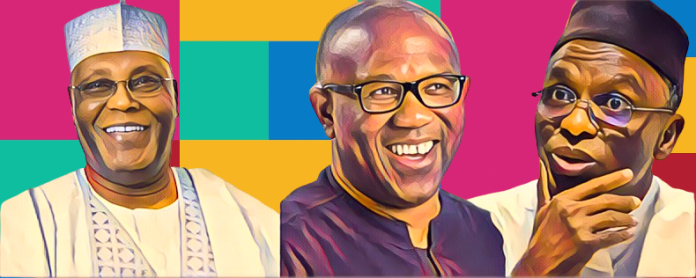
KATSINA – Former Kaduna State Governor, Mallam Nasir El-Rufai, has ignited a fresh wave of political tension with his bold declaration that President Bola Tinubu will be ousted in 2027, hinting at a grand opposition coalition in the works. Speaking at a technology event in Katsina attended by Minister of Digital Economy, Bosun Tijani, El-Rufai stated emphatically that while Tinubu may be sent “back to Lagos,” Tijani would be retained in the next administration due to his commendable performance.
El-Rufai’s remarks mark one of the most audacious public statements by a prominent political figure within the Nigerian elite, signalling deepening fractures and strategic realignments ahead of the 2027 general election.
“Yesterday at 8 pm, there was a very important meeting of the coalition,” El-Rufai announced. “We are talking together to ensure that President Tinubu goes back to Lagos. Though we will keep Bosun Tijani. We still need the minister because he is doing good work.”
Nigerian political discourse as opposition forces rally under a unifying agenda. The coalition El-Rufai referenced reportedly met on May 20 in Abuja and included heavyweights such as former Vice President Atiku Abubakar, Labour Party’s 2023 presidential candidate Peter Obi, and ex-SGF Babachir David Lawal.
Sources confirmed by Bloomberg and Daily Post have stated that this coalition is leaning toward adopting the African Democratic Congress (ADC) as its political vehicle for the 2027 elections. The strategy is clear: unite all disillusioned opposition figures and parties under one banner to mount a credible challenge to the ruling All Progressives Congress (APC).
Despite the bold claims, the ADC leadership has remained measured. Its National Chairman, Chief Okey Nwosu, told Daily Sun that while talks are ongoing with Atiku, Obi, and other prominent figures, no final agreement has been reached.
“ADC has always been a coalition party,” Nwosu explained. “We are speaking with all opposition leaders and political parties. By God’s grace, in a matter of days, we will know the outcome.”
A Unified Front: ADC’s Legacy and Role in the New Opposition Movement
The ADC’s positioning as a transformational party dates back to 2018, when it was endorsed by former President Olusegun Obasanjo as a platform for civil society movements advocating a “New Nigeria.” This legacy now serves as the foundation for a broader alliance seeking to consolidate efforts ahead of the 2027 polls.
According to Nwosu, the ADC’s coalition strategy includes two internal committees: one led by Dr. Bamidele Ajadi and another by Dr. Mani Ibrahim Ahmad. These teams are currently in talks and expected to provide a conclusive update on the coalition’s direction imminently.
“The character of the party is working with deeply patriotic Nigerians to save the country,” Nwosu added. “We’re not alone; other political parties are also engaging in similar coalition-building. Our aim is to create a unified movement involving opposition parties, civil society organizations, and concerned citizens who want to reclaim the country.”
A Nation on the Brink of Political Realignment
El-Rufai’s remarks have since gone viral, stirring reactions across Nigeria’s political landscape. While some view his comments as reckless or divisive, others interpret them as a necessary catalyst to galvanize opposition forces disillusioned by Tinubu’s administration.
For many analysts, El-Rufai’s endorsement of Minister Bosun Tijani—despite his open opposition to Tinubu—illustrates a nuanced strategy: removing perceived ineffective leadership while retaining technocrats who are driving meaningful change.
“This signals a shift,” one political observer noted. “The opposition is not just about criticizing; it’s about building a competent alternative government.”
With the 2027 elections still over two years away, much remains uncertain. However, one thing is clear: the opposition is no longer fragmented. The convergence of political heavyweights like Atiku and Obi, combined with the institutional foundation of the ADC, signals a formidable challenge to Tinubu’s APC.
Whether this coalition can maintain unity and gain nationwide traction remains to be seen. But the battle lines are being drawn, and power dynamics in Nigeria may be on the verge of a seismic shift.


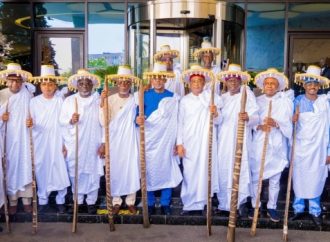

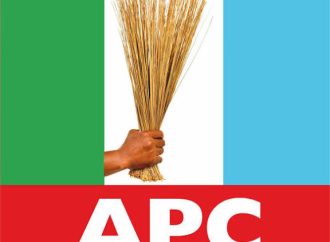
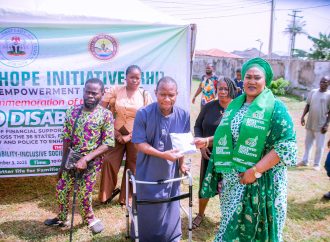
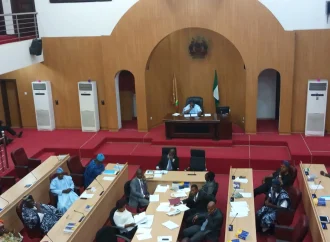


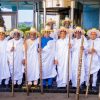
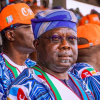

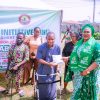





Leave a Comment
Your email address will not be published. Required fields are marked with *